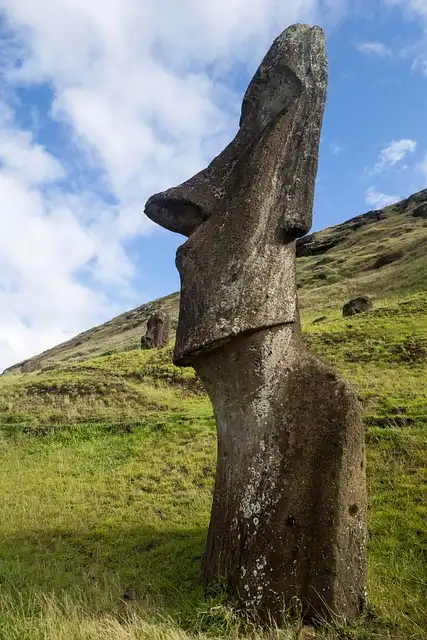Pacific Oceania: Sovereignty, Resilience & Cultural Resurgence

Oceania's island nations assert sovereignty through COFA, diaspora communities maintain culture, and the Pacific Islands Forum champions climate action. Despite challenges, resilience and shared heritage drive renewal and global influence.
Politically and financially, the Marshall Islands, Federated States of Micronesia, and Palau maintain sovereignty through Compacts of Free Organization (COFA) with the United States, allowing residents to live, study, and operate in the united state without visas. In return, Washington protects tactical armed forces accessibility and provides help.
COFA and Pacific Sovereignty
Beyond the islands themselves, diaspora areas expand these resurgences abroad. Tongan parishes in Utah, Samoan churches in The golden state, and Fijian cultural facilities in Sacramento maintain chants, tattooing, and woven arts as types of continuity. All share origins in the Austronesian language family members, extending from Taiwan via the Pacific to Madagascar, a family tree that binds the sea’s individuals.
Regionally, the Pacific Islands Forum has emerged as both a council and an ethical voice, directing exactly how island countries engage with the world. Its participants currently help set the international program on environment action, ocean defense, and electronic collaboration. Across the region, leaders advise the world they are not “small islands” shed in a large sea, however huge ocean countries– communities bound by resilience, shared purpose, and a belief that endurance can bring about renewal.
The Pacific Islands Forum’s Role
At the heart of this area, bounded by Hawaiʻi, Aotearoa, and Rapa Nui, Polynesia consists of sovereign nations such as Samoa, Tonga, and Tuvalu, along with free-association states– the Cook Islands, Niue, and Tokelau– connected to New Zealand.
Polynesia’s Sovereign Nations
And in New Caledonia, Kanak neighborhoods proceed to press for self-reliance with democratic vote. Regionally, the Pacific Islands Discussion forum has actually arised as both a council and a moral voice, directing just how island nations involve with the globe. Throughout the region, leaders remind the globe they are not “little islands” shed in a huge sea, yet large ocean countries– neighborhoods bound by durability, shared objective, and a belief that endurance can lead to renewal.
In 2019, Bougainville elected overwhelmingly for independence, while New Caledonia’s Kanak movement continues to push for decolonization.
Gradually, COFA movement has actually improved American communities from Arkansas to Oregon. The city of Springdale, Arkansas currently organizes countless Marshallese displaced by nuclear contamination and rising seas. Many define their lives as “between homelands”– keeping island customizeds while navigating U.S. labor markets and health and wellness systems.
Diaspora and Cultural Preservation
Today, the area covers 22 island countries and territories, covering virtually one-third of the planet’s surface. In Aotearoa New Zealand, Māori currently number 914,000 (17.1%), while across the USA, Indigenous Hawaiian and Pacific Islander (NHPI) areas amount to in the numerous thousands, securing diasporas across the Pacific Rim and North America.
“Oceania” refers to the Pacific’s large island globe– not a solitary continent, however a living network of countries linked by sea courses, shared origins, and linked languages. The idea, formed by Indigenous Pacific thinkers such as Epeli Hau’ofa, reclaims a geography when treated as scattered and remote– seeing the sea as bridge, not boundary.
In Aotearoa, Māori leaders are developing new wellness systems, Rongoā Māori, that reflect their values and expertise. And in New Caledonia, Kanak neighborhoods proceed to push for self-reliance via democratic vote.
All share origins in the Austronesian language family members, spanning from Taiwan through the Pacific to Madagascar, a lineage that binds the sea’s individuals.
Historically, in between 1946 and 1958, the U.S. carried out 67 nuclear examinations in the Marshall Islands– the results equivalent of 1.6 Hiroshima bombs each day for 12 years. Islands like Swimsuit and Enewetak remain dangerous for habitation.
Nuclear Testing Legacy
Marshallese supporters, including the late Darlene Keju and the youth-led Radiation Exposure Understanding Campaign, have reframed this injury into statement, demanding reparations and acknowledgment. Their advocacy aided seed the Pacific’s climate-justice story: the need not merely to make it through, but to be listened to.
More west, from Papua New Guinea to Fiji, Melanesia holds staggering variety. Papua New Guinea alone has more than 800 traces and languages continual habitation back 50,000 years. In 2019, Bougainville voted extremely for freedom, while New Caledonia’s Kanak activity remains to press for decolonization.
Meanwhile, to the north, exist the Federated States of Micronesia (Yap, Chuuk, Pohnpei, Kosrae), Palau, Kiribati, the Marshall Islands, and Nauru, together with united state territories Guam and the Northern Marianas. Tiny in land, these nations regulate immense Exclusive Economic Areas (EEZs) that form global disputes on sea sources and conservation.
Falepili Union: Migration with Dignity
In 2023, Australia and Tuvalu authorized the Falepili Union, developing a movement pathway for as much as 280 Tuvaluans annually– what Prime Minister Kausea Natano called “migration with dignity.” The deal verifies both the right to relocate and the right to remain.
The USA controls American Samoa, and France supervises French Polynesia, home to Tahiti and Bora Bora. Within this so-called “Polynesian Triangle,” seafarers as soon as navigated thousands of miles using stars and swells– a scientific tradition restored today through voyaging colleges in Hawaiʻi and the South Pacific.
From the low-lying atolls of Micronesia to the volcanic ridges of Melanesia and the distant island chains of Polynesia, Pacific Islanders have sustained centuries of colonial mapping, nuclear testing, and climate vulnerability– yet continue to specify international discussions on self-determination, movement, and ecological justice.
1 Climate Action2 cultural heritage
3 Island Nations
4 Oceania
5 Pacific Islands
6 Sovereignty
« Zohran Mamdani’s Mayoral Run: Culture Clash & American PoliticsSara Wahedi: From Refugee to Tech Innovator in Afghanistan »
